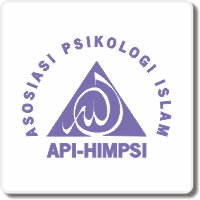Theory of Mind on Ghazali and Ibn Qayyim Al Jauzi Perspective: Analysis Model on Islamic Psychology
DOI:
https://doi.org/10.32923/psc.v4i2.2500Keywords:
Mind, Islamic Psychology, Mental Health, Spiritual OrgansAbstract
The concept of mind was the main issue of philosophical debates on human psychology. In Islamic Psychology, this concept has been discussed long ago by prominent scholars in Islam, both are explained well by Imam al-Ghazali and Ibn Qayyim al-Jauziyyah. This study uses library research with content analysis methods. Hence, this study produces various fundamental ideas. According to Imam al-Ghazali, the human mind has a very influential role in the dynamic movement of human psychology because the mind is a power of knowledge that determines the quality of life. The human mind is called ‘aql, it has a holistic dimension and is interrelated with other spiritual organs. These spiritual organs are called the heart (qalb), spirit (ruh), and soul (nafs). The balance of mind at work affects the mental health that wanted to be achieved. Meanwhile, Ibn Qayyim al-Jauziyyah explained that the human mind is a gift given to humans as a guide for life. If this gift is not used correctly, humans will lose their identity and overlook many problems. The dimensions of thinking according to Ibn Qayyim are tafakkur, tadabbur, and ta'aqqul as contemplative efforts in shaping mental health. This effort can be likened to mindfulness in today's psychology, as clarity of mind with a focus on the present moment. In this way, both of them contribute scientifically with quite strategic exertions, combining the dynamics of the mind holistically to shape human health and well-being.
Downloads
Published
Issue
Section
License
Copyright Notice
The Psychosophia: Journal of Psychology, Religion, and Humanity is under the Creative Commons Attribution 4.0 International (CC-BY 4.0) License, according to which:
1) Authors retain copyright and grant the journal the right to first publication, with the work simultaneously licensed under the Creative Commons Attribution (CC-BY 4.0) that allows the sharing of articles published with the acknowledgment of authorship and the initial publication in this journal.
2) The authors are authorized to make additional contracts separately for distribution of the version of the work published in this journal (for example, publication in an institutional repository or as a chapter of the book), as long as there is recognition of authorship and initial publication in this journal.
3) Authors are authorized and encouraged to publish and distribute their work online (for example, in institutional repositories or on their personal pages) at any time before or during the editorial process, as it increases the impact and reference of the published work.






